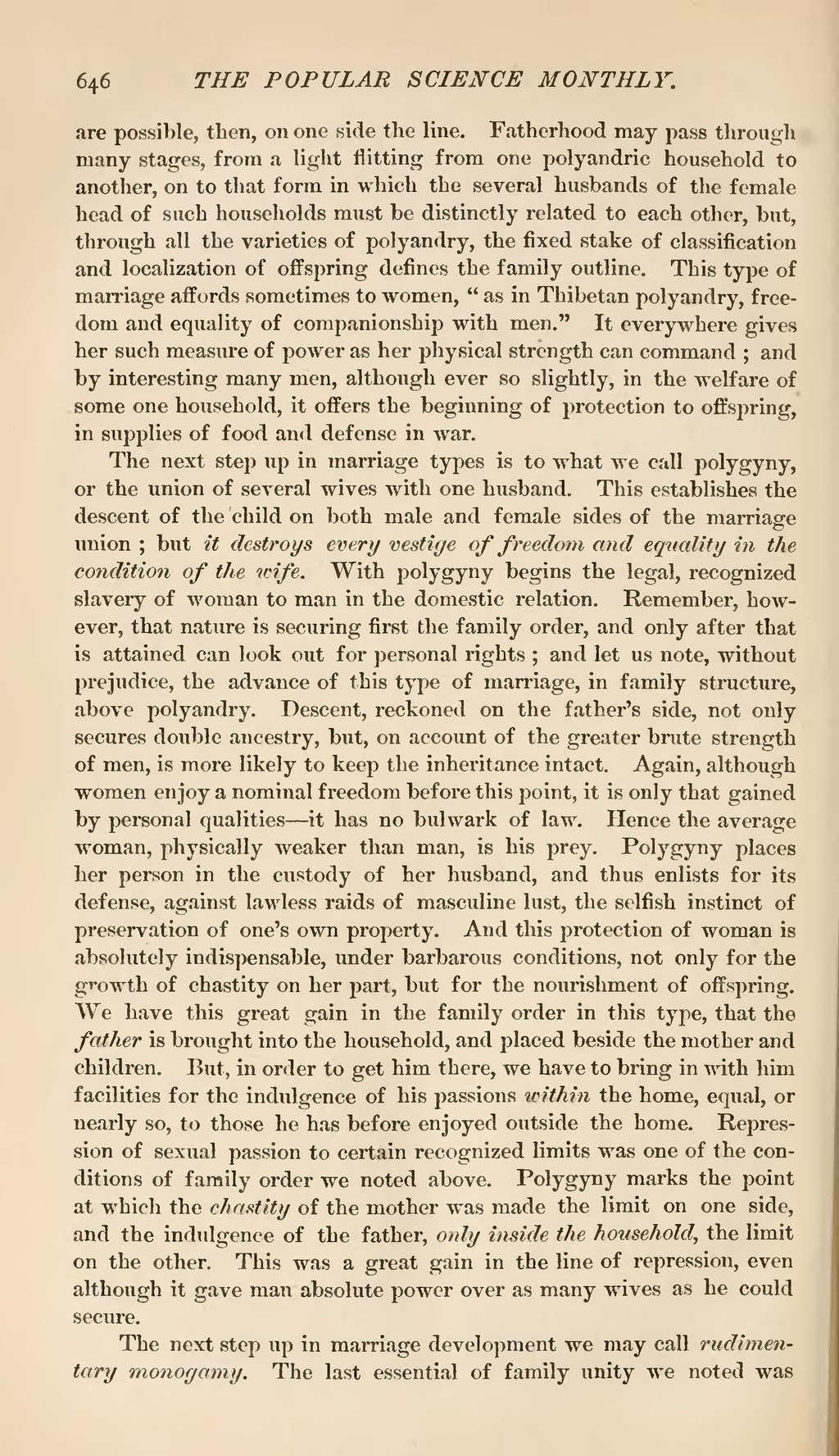are possible, then, on one side the line. Fatherhood may pass through many stages, from a light flitting from one polyandric household to another, on to that form in which the several husbands of the female head of such households must be distinctly related to each other, but, through all the varieties of polyandry, the fixed stake of classification and localization of offspring defines the family outline. This type of marriage affords sometimes to women, "as in Thibetan polyandry, freedom and equality of companionship with men." It everywhere gives her such measure of power as her physical strength can command; and by interesting many men, although ever so slightly, in the welfare of some one household, it offers the beginning of protection to offspring, in supplies of food and defense in war.
The next step up in marriage types is to what we call polygyny, or the union of several wives with one husband. This establishes the descent of the child on both male and female sides of the marriage union; but it destroys every vestige of freedom and equality in the condition of the wife. With polygyny begins the legal, recognized slavery of woman to man in the domestic relation. Remember, however, that nature is securing first the family order, and only after that is attained can look out for personal rights; and let us note, without prejudice, the advance of this type of marriage, in family structure, above polyandry. Descent, reckoned on the father's side, not only secures double ancestry, but, on account of the greater brute strength of men, is more likely to keep the inheritance intact. Again, although women enjoy a nominal freedom before this point, it is only that gained by personal qualities—it has no bulwark of law. Hence the average woman, physically weaker than man, is his prey. Polygyny places her person in the custody of her husband, and thus enlists for its defense, against lawless raids of masculine lust, the selfish instinct of preservation of one's own property. And this protection of woman is absolutely indispensable, under barbarous conditions, not only for the growth of chastity on her part, but for the nourishment of offspring. We have this great gain in the family order in this type, that the father is brought into the household, and placed beside the mother and children. But, in order to get him there, we have to bring in with him facilities for the indulgence of his passions within the home, equal, or nearly so, to those he has before enjoyed outside the home. Repression of sexual passion to certain recognized limits was one of the conditions of family order we noted above. Polygyny marks the point at which the chastity of the mother was made the limit on one side, and the indulgence of the father, only inside the household, the limit on the other. This was a great gain in the line of repression, even although it gave man absolute power over as many wives as he could secure.
The next step up in marriage development we may call rudimentary monogamy. The last essential of family unity we noted was
